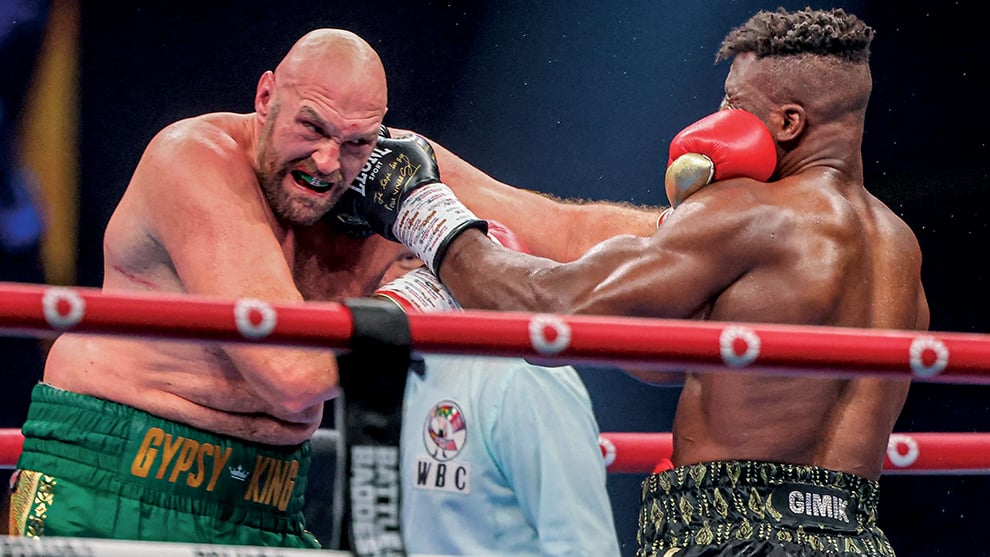By Matt Christie
SCORING fights and the system of doing so is arguably the most debated subject in boxing. This week’s Boxing News highlights the difference in opinion on the matter is stark.
Whether it’s Mikaela Mayer feeling aggrieved, Natasha Jonas feeling relieved or Maxi Hughes feeling cheated (after George Kambosos, the man who beat him so contentiously last year, was awarded the golden ticket to face Vasyl Lomachenko), it’s abundantly clear that the sport is yet to come up with a workable solution to the omnipresent and almost pathological risk of controversy.
Perhaps the most pertinent view on this comes from leading bantamweight Jason Moloney who speaks of his concern that the 10-point-must system is so convoluted it repels new fans. “It’s hard for the general public to understand how a fight is scored,” Moloney tells BN. “[It’s] hard to draw in new audiences when they don’t understand how the sport is scored and how a fight is won.”
This is surely true. A recent case in point would be the furore that greeted Tyson Fury’s points victory over Francis Ngannou in October. By virtue of a solitary knockdown scored by Ngannou and the perception that the African was landing the harder shots, a sizeable portion of the audience watching were perplexed by the judges’ totals to such an extent it was presumed that the fix was in. Consequently, the abiding feeling for too many was one of injustice as opposed to a sense of wonder surrounding the underdog’s showing.
Watching that contest again, and thus removing the surprise factor of Ngannou’s stirring effort, it’s easy to see why Fury nicked it on the judges’ cards. But to ask fans, particularly new ones, to go back and watch a fight again in the hope they’ll develop more of an understanding of the scoring system is unrealistic.
What seems clear is that unless the current system is overhauled, the potential for confusion, and that notion of ‘robbery’, will remain. And for sports to flourish, particularly in this age of immediacy, justice must be seen to be served. Further, how a particular win or loss has been achieved should be understood by as many observers as possible – like in practically every other sport.
Boxing, from the moment it was conceptualised, was designed to be the easiest of all sports to understand. Back then, however, it was acceptable for the winner and loser to be decided purely on attrition – the last man standing wins. For reasons that do not need explaining here, that primeval philosophy had to change.
For now, evolution leaves us with a set number of rounds which are scored separately by three judges, none of which have similar viewpoints to those watching at home. Naturally, as with other sports, that can cause immediate disagreement between those observing on a screen and those watching from barely metres away. In short, we put our trust in those closest to the action to do the right thing. And when they don’t, or we perceive they haven’t, the consequences in boxing can be far reaching. It’s not like an offside goal in football or a bad line call in tennis, though each of those sports have taken steps to avoid such occurrences. Winning and losing has such vast importance in boxing, a bad decision can stall or in some cases ruin entire careers. One must only look at Jack Catterall’s progress since he was ‘outpointed’ by Josh Taylor two years ago as evidence.
For some, like super-welterweight Carl Fail, the difference of opinion is not a problem at all. Quite the contrary, he says, because that subjectivity is all part of the appeal. “Boxing is based on opinions and that’s what makes it so great,” he tells us this week. “Everyone has their own opinion and that’s why they watch it. Everyone sees things differently.”
Again, this has some value. One of the most common changes that has both been suggested is open scoring which, in effect, means the judges’ totals would be made public at the end of each round or after a section of rounds. Therefore, the fighters would know whether they were ahead or behind. So too would everyone watching. This system has plenty of critics. Some have opined that the judges might be swayed if the crowd don’t appear to agree, ultimately causing all manner of errors and chaos. Others have said that if one boxer knows they’re a long way ahead, somewhat negative and unexciting tactics will follow. Yet the overriding objection is that it takes away drama that is exclusive to boxing – those minutes when the world awaits the verdicts of three people.
However, that boxers who believe they’re winning are only told at the final bell who was really winning, does seem unfair, particularly for the loser and specifically when it’s too late to do anything about it.
